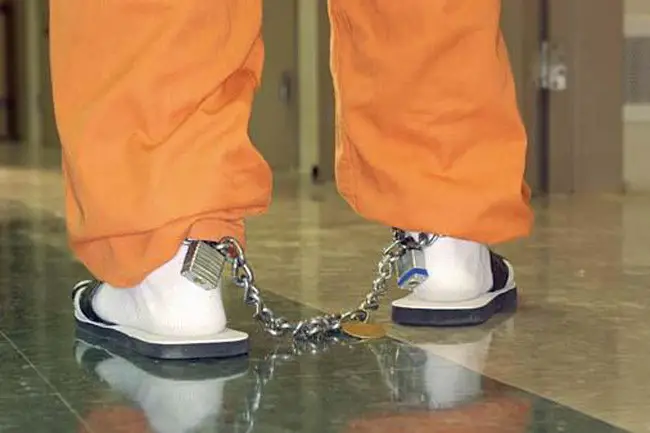
“Almost 40 years after the United States Supreme Court determined that children are entitled to certain due process rights under the Constitution, most notably the right to counsel, many children in Florida still do not have access to the kind of constitutional protections envisioned by the Court,” stated Patricia Puritz, Executive Director of the National Juvenile Defender Center and co-author of the report. “Too many children are hastily shuttled through the justice system without meaningful assistance of counsel and without a clear understanding that a juvenile court adjudication is likely to carry lifelong consequences.”
That as eight years ago. With 20 amendments to juvenile justice laws since then, a few things have changed in Florida, most notably the barring of shackling juveniles, at least in courtroom appearances. That followed a 2009 Florida Supreme Court decision that found “the indiscriminate shackling of children in Florida courtrooms as described in the NJDC’s Assessment–the National Juvenile Defender Center–“repugnant, degrading, humiliating, and contrary to the stated primary purposes of the juvenile justice system and to the principles of therapeutic justice, a concept which this Court has previously acknowledged.”
The justices added: “We also recognize, without deciding, that indiscriminate use of restraints on children in the courtroom in juvenile delinquency proceedings may violate the children‟s due process rights and infringe on their right to counsel. We agree with the proponents of this amendment that the presumption should be that children are not restrained when appearing in court and that restraints may be used only upon an individualized determination that such restraint is necessary.” (See the full decision below.)
The decision drew one dissent, from Justice Charles Canady. “In my view,” he wrote, “the rule unduly restricts the ability of juvenile court judges to ensure that security is maintained in the courtroom.” Yet he acknowledged that the use of restraints “may violate the denfendant’s due process rights,” but only when appearing before a jury.” His reasoning was based on the belief that, citing another judge, “juveniles held in detention have already been determined to be high risk.”
But that’s not at all necessarily the case. “Whether accused of petty theft or strong-arm robbery, marijuana possession or grand theft auto, youths in Broward County are led to juvenile court in chains,” the Sun-Sentinel reported a year after the Florida Supreme Court’s decision. “Restrained by ankle shackles, belly chains and handcuffs, they’re escorted by deputies through crowded hallways and onto elevators while the public looks on.And shackling of children continues in Florida, as long as it’s not in court. ”
The practice is widespread in the nation, but particularly in the South, and remains in force in Florida, the state with the harshest juvenile-sentencing and incarceration laws in the country.
From Mother Jones: “At least 100,000 children are shackled in the US every year, according to estimates by David Shapiro, a campaign manager at the Campaign Against Indiscriminate Juvenile Shackling. (Formal data on numbers of shackled kids does not exist.) As juvenile justice practices have grown more punitive over the past several decades, shackling has become far more common. This month, the American Bar Association (ABA) passed a resolution calling for an end to this practice because it is harmful to juveniles, largely unnecessary for courtroom safety—and contradicts existing law. “We’re not just talking handcuffs here. These kids are virtually hog-tied,” says John D. Elliott, a South Carolina defense attorney who worked on the resolution. “The only difference is their hands are in front. The restraints—which include handcuffs, belly chains, and leg irons—are used on kids of all ages and often don’t fit the severity of their crime: The majority of kids are in court for non-violent offenses, like shoplifting or truancy.”
![]()





























ted bundy says
the only juvies in this country are under the age of 10, UNDER the age of 10 PERIOD..the rest are simply young criminals who deserve shackles and jail..
tomc says
Why are they called children? Come on….they are thugs in the making. Deputies know what they are doing.